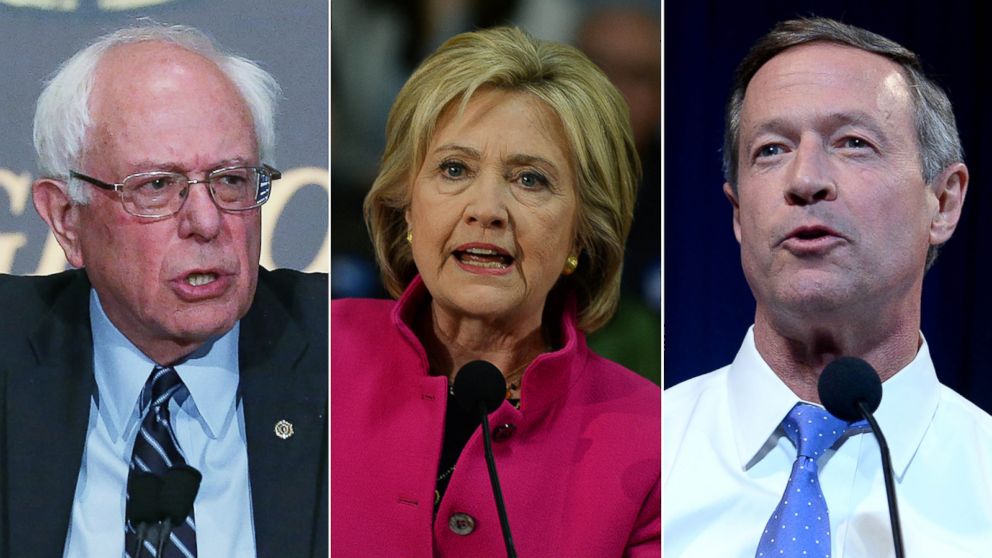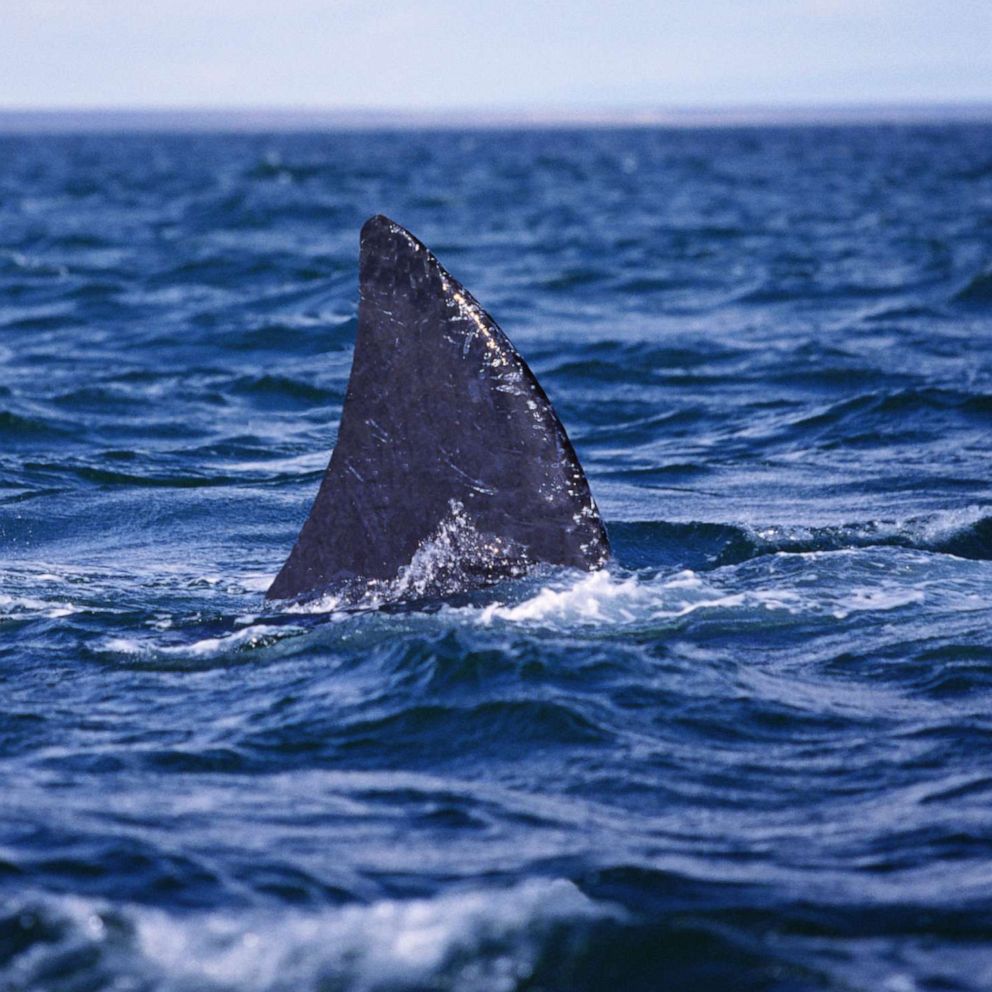5 Things You Missed From the Past Democratic Debates
Five things you may have missed ahead of ABC News' Saturday Democratic debate.

— -- The last presidential debate of 2015 is on Saturday -- the third time the remaining Democratic candidates Hillary Clinton, Bernie Sanders and Martin O’Malley will duke it out. This time, the debate will be in the crucial state of New Hampshire.
But if you were on vacation, or if you were stranded on a deserted island, or if you forgot, or if you just didn’t care to tune in, you may have missed some key moments in the past Democratic debates.
Here are five things you may have missed ahead of ABC News’ Democratic presidential debate on Saturday moderated by "World News Tonight" anchor David Muir and global affairs chief anchor Martha Raddatz.
SANDERS LOSES IT OVER CLINTON’S EMAILS
First Democratic debate - October 13, 2015
Sanders didn’t hold back his thoughts on Clinton’s private email server during the first Democratic debate, even doing something he called “not great politics.”
When Clinton was asked about her private email account she used while she was secretary of state, that’s when the Vermont senator intervened.
"Let me say something that may not be great politics, but I think the secretary is right,” Sanders said. “And that is that the American people are sick and tired of hearing about your damn emails!”
“Let’s talk about the real issues facing America,” Sanders insisted.
AND THEN THERE WERE THREE
First Democratic debate - October 13, 2015
Two candidates -- Jim Webb and Lincoln Chafee -- joined the company of Clinton, Sanders and O’Malley, but their moments in the national spotlight were few and limited.
Webb didn’t get a chance to shine during the first Democratic debate and he made his frustrations known, arguing, “unless somebody mentions my name I can't get into the discussion."
However, nearing the end of the debate, the former senator from Virginia and secretary of the Navy, left his mark as he casually mentioned killing someone.
When asked about political enemies he’s made, Webb said with a smirk, “I’d have to say the enemy soldier that threw the grenade that wounded me, but he’s not around right now to talk to."
Former Rhode Island Gov. Lincoln Chafee had a oops moment when he said he didn’t know what he was voting for when he first joined the Senate in 1999.
“Glass-Steagall was my very first vote,” Chafee said. “I had just arrived. My dad had died in office. I was appointed to the office. It was my very first vote.”
CNN’s Anderson Cooper followed up, “Are you saying you didn’t know what you were voting for?”
“I just arrived at Senate. I think we get some take-overs,” Chafee reiterated, before adding that Cooper was being a “little rough.”
Following the first Democratic debate, Webb and Chafee dropped out of the race.
DEBATING AT A SOMBER TIME
Second Demcratic debate - November 14, 2015
The Paris terrorist attacks cast a somber shadow over the second Democratic debate in Des Moines, Iowa, having occurred only a day before.
The night started off with a moment of silence before launching into a debate that focused heavily on foreign and homeland security policy. Clinton, Sanders and O’Malley campaigned aggressively on gun control in the wake of the attacks.
O’Malley called Clinton out on her position on gun control. “But Secretary Clinton, you’ve been on three sides of this. When you ran in 2000, you said we needed federal robust regulations. Then, in 2008, you were portraying yourself as Annie Oakley and saying we don’t need those regulations on the federal level and now you’re coming back around here. There’s a big difference between leading by polls and leading with principle.”
CLINTON GETS CORNERED ON HER TIES TO WALL STREET
Second Democratic debate - November 14, 2015
During the Democrats’ second debate, a heated moment occurred between Clinton and Sanders over Wall Street and Clinton’s ties to the financial sector.
Clinton argued that while she has accepted donations from Wall Street, she has an aggressive and comprehensive plan to “rein in Wall Street.”
Sanders criticized Clinton’s argument as “not good enough.”
“I have never heard a candidate ever who has received huge amounts of money from oil, from coal, from Wall Street, from the military industrial complex, not one candidate [say] ‘Oh, these campaign contributions will not influence me,’” Sanders said.
Clinton then stood up for herself, invoking the 9/11 attacks as to why she has ties to and receives donations from Wall Street.
“I represented New York, and I represented New York on 9/11 when we were attacked. Where were we attacked? We were attacked in downtown Manhattan where Wall Street is,” Clinton said. “I did spend a whole lot of time and effort helping them rebuild. That was good for New York. It was good for the economy, and it was a way to rebuke the terrorists who had attacked our country.”
CANDIDATES ACCEPT SYRIAN REFUGEES
Second Democratic debate - November 14, 2015
While most Republican hopefuls are not willing to accept Syrian refugees in the United States, Democratic candidates stated why the U.S. should.
Sen. Bernie Sanders of Vermont argued the U.S. has the "moral responsibility" to accept refugees.
“I believe United States has the moral responsibility with Europe, with Gulf countries like Saudi Arabia, to make sure that when people leave countries like Afghanistan and Syria with nothing more than the clothing on their back that, of course, we reach out,” Sanders said at the second Democratic debate. “Now, what the magic number is, I don’t know because we don’t know the extent of the problem.”
While, Sanders couldn’t come up with a "magic number," the former governor of Maryland didn’t seem to hesitate.
“I was the first person on this stage to say that we should accept the 65,000 Syrian refugees that were fleeing the sort of murder of ISIL [ISIS], and I believe that that needs to be done with proper screening,” Martin O’Malley said promptly.
The Democratic front-runner agreed with O’Malley, but stressed the significance of the screening and vetting process.
“I also said that we should take increased numbers of refugees,” Clinton said. “The administration originally said 10 [thousand]. I said we should go to 65 [thousand], but only if we have as careful a screening and vetting process as we can imagine, whatever resources it takes. I do not want us to in any way inadvertently allow people who wish us harm to come into our country.”




